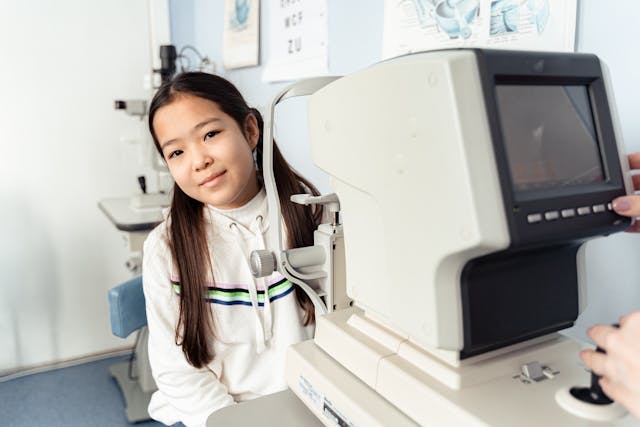A concussion is a type of traumatic brain injury (TBI) that occurs when the brain is jolted or shaken inside the skull. It is commonly linked to sports injuries, falls, or automobile accidents. While the physical symptoms of a concussion may be addressed promptly, less evident complications, such as vision issues, can go unnoticed. This article explores how concussions affect vision, common symptoms to watch for, and potential approaches to addressing these changes.
How Concussions Affect Vision
The brain plays a central role in vision processing. Several areas of the brain work together to interpret visual information received from the eyes. A concussion’s impact can disrupt these processes, leading to temporary or long-term vision issues. Even mild concussions can interfere with the brain’s ability to coordinate eye movements or process visual input effectively.
The visual system comprises many parts, including the occipital lobe, oculomotor nerves, and related neural pathways. A concussion can affect one or more of these components, resulting in a range of symptoms. Recognizing these symptoms can help identify potential vision-related complications early.
Common Vision Problems After a Concussion
Those who have experienced a concussion may notice unusual changes in their vision. These changes may vary depending on the severity of the injury and which areas of the brain were affected. Some common concussion-related vision problems may include:
- Blurred Vision: Difficulty focusing on objects at close or far distances.
- Sensitivity to Light: Experiencing discomfort or pain when exposed to bright or fluctuating lighting.
- Double Vision: Seeing two images of a single object, also known as diplopia.
- Trouble with Eye Coordination: Difficulty in tracking moving objects or shifting focus between near and distant objects.
- Visual Fatigue: Feeling tired or strained after activities requiring sustained visual attention, such as reading or working on screens.
Behavioral and Cognitive Impacts of Vision Issues
Vision changes following a concussion can affect more than just eyesight. They may influence behaviors, cognitive abilities, and overall daily functioning. Those experiencing difficulties with eye coordination or focus may struggle with tasks like reading, recognizing faces, or navigating spaces. Visual fatigue and double vision can also contribute to headaches or difficulties concentrating. Left unaddressed, these symptoms can sometimes lead to frustration, irritability, or avoidance of certain activities.
Strategies to Address Post-Concussion Vision Problems
If vision issues arise after a concussion, seeking advice from healthcare professionals can be helpful. An optometrist or neuro-ophthalmologist may conduct assessments to evaluate how the eyes and brain are functioning together. Approaches may include vision therapy, which involves focused exercises to improve eye coordination and visual processing. Wearable aids, such as specialized glasses or tinted lenses, may reduce discomfort caused by sensitivity to light or other symptoms. Rest and gradual reintroduction of activities that require visual concentration can often be part of the recovery process.
How to Support Recovery and Prevent Further Issues
Those recovering from a concussion may benefit from modifying their daily routines to reduce strain on the eyes. Limiting screen time, taking frequent breaks from visual activities, and avoiding exposure to bright environments may help manage symptoms. Adopting a well-balanced lifestyle with a focus on rest, nutrition, hydration, and light physical activity can further support recovery efforts.
Take the Next Step Toward Understanding Vision Issues
Concusion-related vision problems can impact everyday activities, making recovery more complex and nuanced. Understanding the potential challenges and exploring avenues for support can make all the difference in managing these symptoms effectively. If you or someone you know is dealing with vision issues post-concussion, consult a qualified eye care professional.

